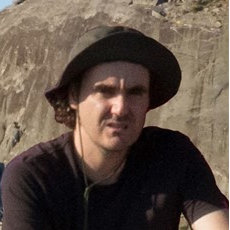Geoparks: Exploring New Trends in Geoeducation and Geotourism Perspectives
A special issue of Geosciences (ISSN 2076-3263). This special issue belongs to the section "Geoheritage, Geoparks and Geotourism".
Deadline for manuscript submissions: closed (31 March 2025) | Viewed by 12036
Special Issue Editors
Interests: palaeoecology; sedimentology; palaeoenvironment; geoheritage; geotourism; geoconservation; geoeducation
Special Issues, Collections and Topics in MDPI journals
Interests: geodiversity; geoheritage; geomorphology
Special Issues, Collections and Topics in MDPI journals
Special Issue Information
Dear Colleagues,
Geoparks, situated at the nexus of geology, education, and tourism, represent a distinctive milieu for the examination of Earth's geological heritage while concurrently fostering sustainability through a multifaceted approach. This approach encompasses the conservation of geological and ecological legacies, the cultivation of sustainable tourism practices, community involvement, public education, rigorous scientific inquiry, cultural heritage preservation, and extensive collaboration with diverse stakeholders. These comprehensive endeavors render geoparks exemplars of harmonizing tourism and conservation objectives to ensure enduring sustainability.
This Special Issue assumes paramount significance in the preservation of geological treasures and the advancement of sustainable tourism and innovative education within geoparks. It endeavors to present strategic frameworks for the enduring safeguarding of geological assets, the promotion of sustainable tourism practices, the introduction of pioneering techniques in geoeducation, and the incorporation of cutting-edge technologies, enhancing the overall visitor experience. Moreover, it aspires to stimulate interdisciplinary synergy and the dissemination of knowledge, tackling challenges confronting geoparks and motivating a global audience to cherish and safeguard our geological marvels.
Furthermore, this Special Issue endeavors to address existing gaps in the amalgamation of geoeducation and geotourism within geoparks, the promotion of sustainability in geotourism endeavors, the efficacious application of technology, and the cultivation of worldwide cooperation and knowledge exchange within the sphere of geological heritage conservation and geopark management. The thematic subjects of this Special Issue encompass the following:
Geoeducation Innovations;
Geotourism Sustainability;
Geopark Management and Conservation;
Technological Advancements;
Interdisciplinary Collaborations;
Global Perspectives.
Researchers, practitioners, and educators within the realms of geology, education, and tourism are cordially invited to contribute to this Special Issue, thereby enriching the discourse on geopark administration and augmenting our appreciation for Earth's geological wonders.
Prof. Dr. Hara Drinia
Dr. Paulo Pereira
Guest Editor
Manuscript Submission Information
Manuscripts should be submitted online at www.mdpi.com by registering and logging in to this website. Once you are registered, click here to go to the submission form. Manuscripts can be submitted until the deadline. All submissions that pass pre-check are peer-reviewed. Accepted papers will be published continuously in the journal (as soon as accepted) and will be listed together on the special issue website. Research articles, review articles as well as short communications are invited. For planned papers, a title and short abstract (about 100 words) can be sent to the Editorial Office for announcement on this website.
Submitted manuscripts should not have been published previously, nor be under consideration for publication elsewhere (except conference proceedings papers). All manuscripts are thoroughly refereed through a single-blind peer-review process. A guide for authors and other relevant information for submission of manuscripts is available on the Instructions for Authors page. Geosciences is an international peer-reviewed open access monthly journal published by MDPI.
Please visit the Instructions for Authors page before submitting a manuscript. The Article Processing Charge (APC) for publication in this open access journal is 1800 CHF (Swiss Francs). Submitted papers should be well formatted and use good English. Authors may use MDPI's English editing service prior to publication or during author revisions.
Keywords
- geoparks
- geological heritage
- geoeducation
- geotourism
- sustainability conservation cultural heritage
- community engagement
- sustainable tourism
- environmental preservation technological advancements
- interdisciplinary collaboration
- geological conservation
- education innovation
- geospatial technology
- ecological sustainability
- local communities
- geological wonders
- biodiversity conservation
- cultural preservation
Benefits of Publishing in a Special Issue
- Ease of navigation: Grouping papers by topic helps scholars navigate broad scope journals more efficiently.
- Greater discoverability: Special Issues support the reach and impact of scientific research. Articles in Special Issues are more discoverable and cited more frequently.
- Expansion of research network: Special Issues facilitate connections among authors, fostering scientific collaborations.
- External promotion: Articles in Special Issues are often promoted through the journal's social media, increasing their visibility.
- Reprint: MDPI Books provides the opportunity to republish successful Special Issues in book format, both online and in print.
Further information on MDPI's Special Issue policies can be found here.






